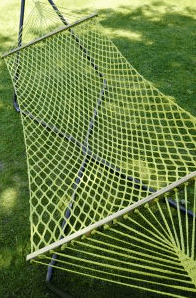Leisure? What Leisure?
by Brandon Fuller Between 1890 and today, inflation-adjusted average income in the United States has increased by a factor of 8, while the average hours of weekly work have declined by approximately 20. That's good news: we earn more (a lot more) than we used to, and we do it with a shorter work week. People also start work later in life (less child labor, more college educations) and retire earlier. So, what are we doing with all of that extra time away from paid work? In his latest New York Times column, Hal Varian considers recent research that attempts to answer the question.
Between 1890 and today, inflation-adjusted average income in the United States has increased by a factor of 8, while the average hours of weekly work have declined by approximately 20. That's good news: we earn more (a lot more) than we used to, and we do it with a shorter work week. People also start work later in life (less child labor, more college educations) and retire earlier. So, what are we doing with all of that extra time away from paid work? In his latest New York Times column, Hal Varian considers recent research that attempts to answer the question.According to economists Valerie Ramey and Neville Francis, the decline in hours of paid work has not corresponded to an increase in leisure time—primarily because leisure is not the same thing as time away from paid work. So, what exactly is leisure time? The American Heritage Dictionary defines leisure as freedom from time-consuming duties, responsibilities, or activities. But even this definition is vague: aren't all activities—including pleasurable ones like reading, sex, sailing, hiking, or watching TV—time-consuming?
The economists offer their own definition: leisure activities are those that provide direct enjoyment. Under this definition, undesirable and unpaid work we do on our free time (like taking out the trash) does not count as leisure. So what does? Read Varian's latest column to see how Ramey and Francis categorize leisure activities and why their research suggests that leisure time today is about as plentiful as it was in 1890.
Discussion Questions
1. In 1910, how many male children 10 to 15 years old were employed full-time? How many 14- to 17-year-olds were enrolled in high school? What's happened to teenage enrollment rates over time? What about the leisure time of children and teenagers?
2. How do Ramey and Francis determine what activities provide direct enjoyment? What about non-paid activities, like child care, that involve both pleasant and unpleasant aspects?
3. How have advances in technology affected the amount of non-paid housework we choose to do? There's a tradeoff between non-paid housework and leisure. What do the choices we've made about housework over the past century suggest about the value of additional leisure time compared to the value of additional nutrition, health, and cleanliness?
4. Have job characteristics changed over the past century? Have jobs become more pleasant (or less unpleasant)? What about non-paid housework? Ramey and Francis contend that the amount of time we devote to purely enjoyable activities hasn't changed much over the past century. In what ways has the time we spend on paid and non-paid work become more (or less) enjoyable?
5. Steven Landsburg discusses leisure in his latest Slate column.What's been happening to the distribution of leisure time since the 1960s?



0 Comments:
Post a Comment
<< Home